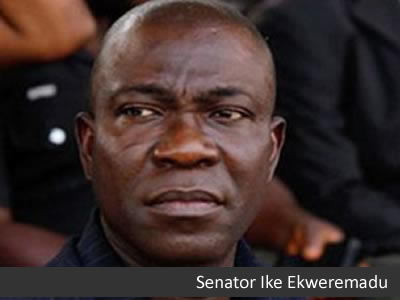Unless the twain issues of ethnicity and lack of political will are dealt with constitution-making in pluralistic and developing Commonwealth societies will remain herculean.
Deputy Senate President Senator Ekweremadu made this postulation while speaking on the topic “The Politics of Constitution-making: the Parliaments Role in Relation to the People” at the ongoing 58th Commonwealth Parliamentary Association (CPA) Conference in Colombo Sri-Lanka.
He said the tendency for each ethnic group to seek maximum guarantee against domination by others as well as maximum share of power often tend to downplay national interest.
Ekweremadu who was the Discussion Leader for the CPA Workshop on constitution-making at the CPA Conference observed that “when the political elites approach the process of constitution-making with sectional biases and short-sightedness rather than exhibit reasoned analysis and good faith in the examination of the issues, such ethnic sentiments and provocative rhetoric only manage to envenom the polity and significantly diminish the prospects of building a consensus even on most apparently worthwhile matters”.
The Deputy President of Senate and Chairman of the Senate Committee on Constitution Review said the political will to balance personal, group, ethnic and institutional interests have often proven difficult in many Commonwealth states as persons in positions of authority as well as different levels and arms of government find it difficult to support provisions that will whittle down their extant powers or comparative advantages, even if such provisions would be in the overall interest of their country.
“Also, matters that could be handled through consensus building and policy/administrative means are also subjected to the rigours of constitution amendments”, he added.
The Senator representing Enugu West Senatorial District also listed inexperience and lack of template of procedure, crises of expectation, temptation to do too much at a time, apathy, lack of democratic culture, and lack of autonomy of constitution-making bodies such as parliaments among other major constraints to constitution-making in many Commonwealth States.
He however said the challenges were surmountable if Commonwealth lawmakers, political elites, and stakeholders put national interest above any other interests and ensured massive participation of the citizens in the constitution-making process.
Senator Ekweremadu insisted that the citizens had moral claims to participating in constitution-making and urged parliamentarians and every stakeholder and institution driving the constitution-making process in various Commonwealth nations to ensure that the principles of inclusivity, diversity, transparency, and accountability were religiously observed to guarantee legitimacy of the final product through wide acceptance among the citizenry.
He further said: “Whatever constitution the people will live under and obey must enjoy popular recognition and acceptance as their own document by capturing their views, expectations, and aspirations.
“The thrust of the parliament should therefore be to fully engage the people every inch of the process so that they will own the final product, both its perfections and imperfections.”



